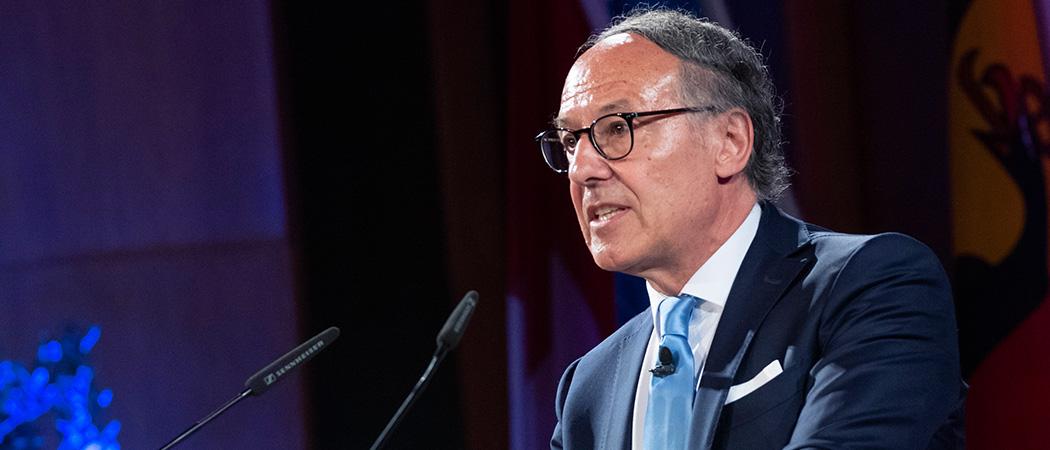Commission welcomes Swiss parliament’s decision to pay overdue contributions to cohesion funding, but insists it will not lead to association without broader agreements first

Yves Flückiger, president of the swissuniversities. Photo: Jean-Marc Ferré
The Swiss parliament has agreed to pay overdue cohesion funds stretching back to 2012, removing one hurdle to reviving Horizon Europe association talks, which have been on hold since Switzerland walked away from long-running negotiations to establish a new overall relationship with the EU in May.
Swiss universities are hoping this improves the prospect of Horizon Europe association. “We are at the stage of first political reactions, but I sincerely hope that, beyond these declarations, the door to negotiations will be opened again as soon as possible,” said Yves Flückiger, president of the umbrella body swissuniversities.
“This is the will of the Swiss higher education institutions but also of all our partners, such as the League of European Research Universities or Coimbra group just to mention few networks, in the European Union,” Flückiger said.
Payment of the cohesion fund contributions was the first of the Commission’s preconditions for restarting Horizon Europe talks. It has previously said it is “politically impossible” to move forward otherwise.
But even though Bern has agreed to pay up, the Commission insists there is no quid pro quo forthcoming until other conditions are met.
“We welcome the decision of the Swiss parliament in favour of the unconditional disbursement of the second Swiss cohesion contribution,” a Commission spokesman said. “This is a step in the right direction.”
But he added, “The EU has always been very clear on the matter: this contribution is unconditional. It is the logical counterpart of Swiss access to the EU single market, from which it benefits enormously. There is absolutely ‘no linkage with other files’, no conditionality, no trade off to be made here.”
Second hurdle
Before Switzerland can join Horizon Europe, it needs to clear the second hurdle of an “overall agreement” setting out the “conditions and the modalities” of participation. This will take into account Swiss-EU relations “as a whole”, the spokesman said.
The Swiss side is well aware that paying the cohesion funds alone will not necessarily lead to Horizon Europe association.
“The first element is now fulfilled by Switzerland, the second one can only be achieved in exploratory or negotiation talks,” said a spokeswoman for the Swiss State Secretariat for Education, Research and Innovation.
Switzerland, now shut out of future individual grant calls for the European Research Council, Marie Skłodowska-Curie Actions and the European Innovation Council, is setting up its own funding schemes to try to replicate elements of Horizon Europe while negotiations are on ice.
But there is an acknowledgement within the country that home grown alternatives cannot make up for the global prestige and networks of Horizon Europe.
“They are no substitute for Switzerland’s full association,” said the Board of the Swiss Federal Institutes of Technology on 23 September. “There is a risk that leading researchers will emigrate to other countries or no longer come to Switzerland at all, resulting in our country losing out on international cooperation,” the board said in a statement.
More than half of international collaborations undertaken by the country’s two federal institutes of technology are with the EU and greater cooperation with the US or Asia would not compensate for being left out of Horizon Europe, the statement said.





 A unique international forum for public research organisations and companies to connect their external engagement with strategic interests around their R&D system.
A unique international forum for public research organisations and companies to connect their external engagement with strategic interests around their R&D system.